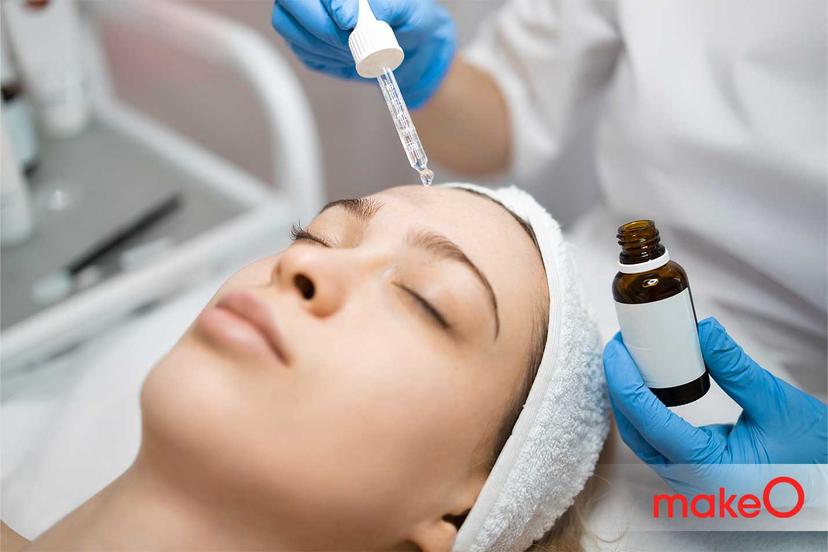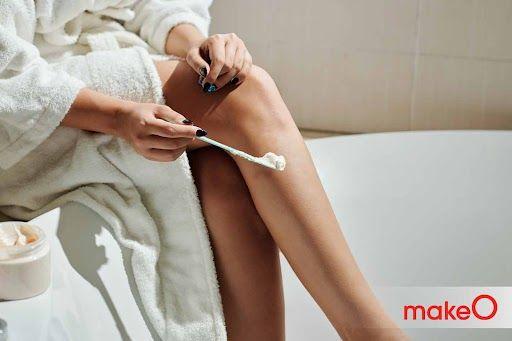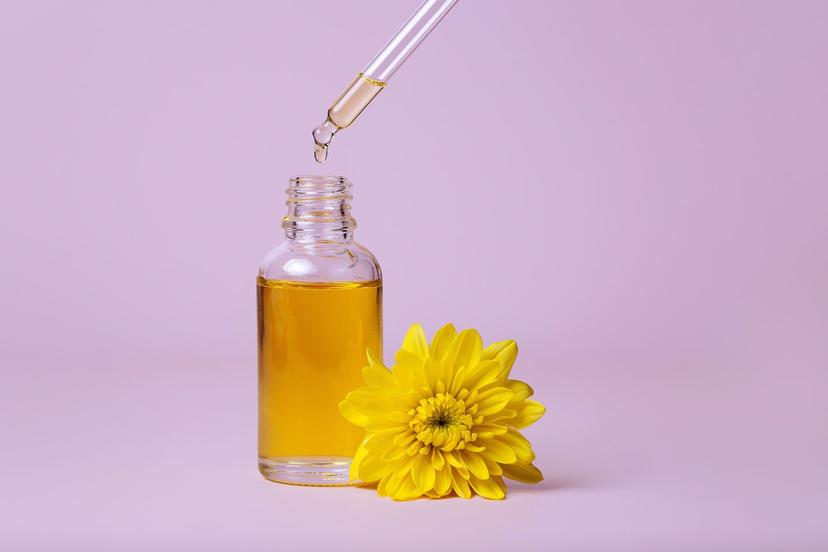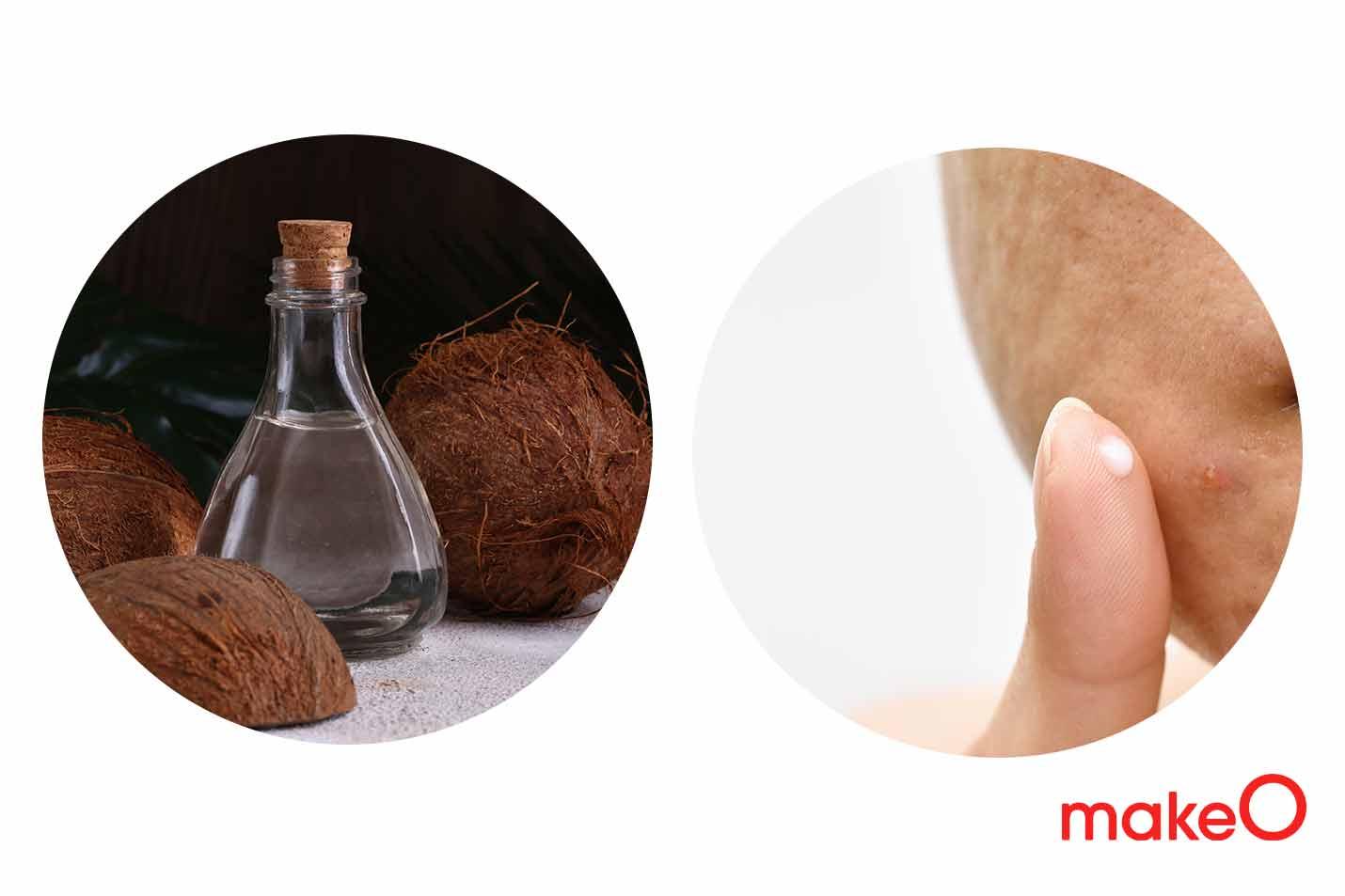MakeO blog
Irrespective of how elaborate one’s skincare routine is or how clean their diet is, everyone must have experienced acne at least once in their lifetime. If you have ever looked up on the internet for natural and at-home remedies for acne, then we are sure you would have come across the concept of using coconut oil for skin. Just like there are plenty of benefits of coconut water for skin, coconut oil is a blessing of nature. The internet is divided into two groups, some supporting the use of coconut oil for skin and some completely against it. If you are baffled as to whom to trust, worry no more.
Here the makeO skin (formely skinnsi) professionals have gathered everything you must know about coconut oil for skin. Read these expert-verified facts and make the decision yourself.
Can coconut oil clear your pimples?
Yes, coconut oil can help prevent pimples and even reduce pimples and acne scars on the skin if used regularly. Coconut oil is filled with Medium-Chain fatty acids (MCFAs) like lauric acid, capric, caproic and caprylic. These MCFAs have strong anti-microbial effects, meaning, they can kill disease-causing microorganisms, making it reliable to use coconut oil for skin. Moreover, coconut oil is known to be antibacterial, anti-microbial, anti-fungal, and anti-inflammatory in nature. These properties make pure coconut oil for skin very effective in killing acne-causing bacteria.
How can you use coconut oil to treat acne?
Just because it is antimicrobial, does not mean everyone can blindly use virgin coconut oil for skin. For coconut oil to work on the skin, the lauric acid has to seep into the pores and kill the acne-causing bacteria. For this, the lauric acid for skin must be put on a carrier to take the fatty acid where it needs to be.
There are various virgin coconut oil uses that are popular and can be effective. To experience virgin coconut oil benefits for skin as a moisturiser, take some product on your palms and rub your palms together to warm up the product. You can now dab the product on your face. Let it sit for 5-10 mins and then wash it with a gentle cleanser.
Who should avoid using coconut oil?
To answer this question it is important to first understand that not every remedy works for everyone. Coconut is highly moisturising and may not be the best choice for people with oily skin. It is labelled medium to high on the comedogenic scale. This indicates that using coconut oil can cause clogged pores, breakouts, whiteheads or blackheads on sensitive and oily skin. However, this does not mean you have to stay away from the benefits of coconut oil. In such cases, it is not feasible to use coconut oil for pimples, but rather for oil cleansing or double-cleansing (even if you have acne-prone skin).
If you have a dry or combination skin type, then congratulations! You can benefit the most from coconut oil. Coconut oil is very hydrating and can be a boon for dry and combination skin types.
Are There Any Other Reliable Alternatives to Coconut Oil?
As mentioned earlier, not every treatment is meant for everyone. When it comes to skincare, it is always a good idea to do a patch test on your hand or neck to see how your skin reacts to it. If you are someone with excessively oily skin or someone who wishes to opt for better and more effective methods of acne treatment, you can try the acne treatment by makeO skin (formely skinnsi). Under this treatment, you can try the makeO skin (formely skinnsi) chemical peel and a scar reduction treatment to get your clear flawless skin back. For more details, get in touch with us today!
Conclusion:
To put it in a nutshell, virgin coconut oil for skin is a naturally obtained organic form of acne treatment that has proved its worth for several people. Whether it works for your skin or not can only be verified by a patch test or by consulting your dermatologist.
FAQs Coconut oil for skin benefits
Can you use coconut oil for pimples overnight?
Coconut oil can clog the pores if left on for an entire night. It is best to apply some product on your face for a couple of minutes and then wash it off for best results.
Is coconut oil good for pimples and their scars?
Yes, using coconut oil on your face can help kill the acne-causing bacteria, and prevent further breakouts and since it is hydrating, it will reduce the effect of acne scars as well.
Is coconut oil suitable for all skin types?
Coconut oil for skin is comedogenic and can clog the pores and cause acne if used on oily skin. It is advisable for people with dry or combination skin types to apply coconut oil on their skin.
Which type of coconut oil is the best?
Refined coconut oil has a neutral smell and a higher smoking point whereas virgin coconut oil has a stronger smell. Virgin coconut oil benefits for skin and hair are plenty as it retains more nutrients and free radicals.
Does coconut oil get absorbed into the skin?
Yes, coconut oil does get absorbed into the skin. People with dry skin will experience hydrated and soft skin after use whereas it avoids adverse skin reactions for people with oily and sensitive skin types.
Related articles

Anti-Ageing Face Oils: Unveiling the 10 Best Facial Oils for Youthful Skin

5 Common Mistakes to Avoid When Using a Face Roller

Is Aloe vera effective for acne? Find out

5 Side Effects of Hair Removal Creams That You Must Know

